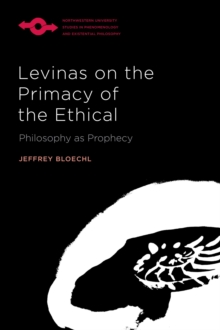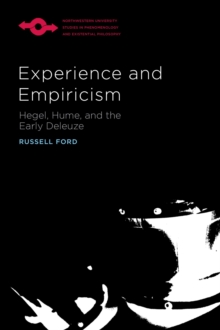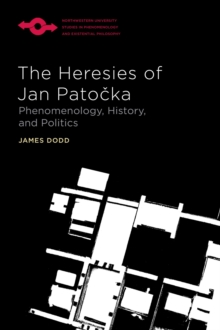
Essential History : Jacques Derrida and the Development of Deconstruction PDF
by Kates Joshua Kates
Part of the Studies in Phenomenology and Existential Philosophy series
Please note: eBooks can only be purchased with a UK issued credit card and all our eBooks (ePub and PDF) are DRM protected.
Description
However widely—and differently—Jacques Derrida may be viewed as a "foundational" French thinker, the most basic questions concerning his work still remain unanswered: Is Derrida a friend of reason, or philosophy, or rather the most radical of skeptics? Are language-related themes--writing, semiosis--his central concern, or does he really write about something else? And does his thought form a system of its own, or does it primarily consist of commentaries on individual texts? This book seeks to address these questions by returning to what it claims is essential history: the development of Derrida's core thought through his engagement with Husserlian phenomenology. Joshua Kates recasts what has come to be known as the Derrida/Husserl debate, by approaching Derrida's thought historically, through its development. Based on this developmental work, Essential History culminates by offering discrete interpretations of Derrida's two book-length 1967 texts, interpretations that elucidate the until now largely opaque relation of Derrida's interest in language to his focus on philosophical concerns.
A fundamental reinterpretation of Derrida's project and the works for which he is best known, Kates's study fashions a new manner of working with the French thinker that respects the radical singularity of his thought as well as the often different aims of those he reads. Such a view is in fact "essential" if Derrida studies are to remain a vital field of scholarly inquiry, and if the humanities, more generally, are to have access to a replenishing source of living theoretical concerns.
A fundamental reinterpretation of Derrida's project and the works for which he is best known, Kates's study fashions a new manner of working with the French thinker that respects the radical singularity of his thought as well as the often different aims of those he reads. Such a view is in fact "essential" if Derrida studies are to remain a vital field of scholarly inquiry, and if the humanities, more generally, are to have access to a replenishing source of living theoretical concerns.
Information
-
Download - Immediately Available
- Format:PDF
- Pages:352 pages
- Publisher:Northwestern University Press
- Publication Date:11/11/2005
- Category:
- ISBN:9780810162365
Information
-
Download - Immediately Available
- Format:PDF
- Pages:352 pages
- Publisher:Northwestern University Press
- Publication Date:11/11/2005
- Category:
- ISBN:9780810162365










